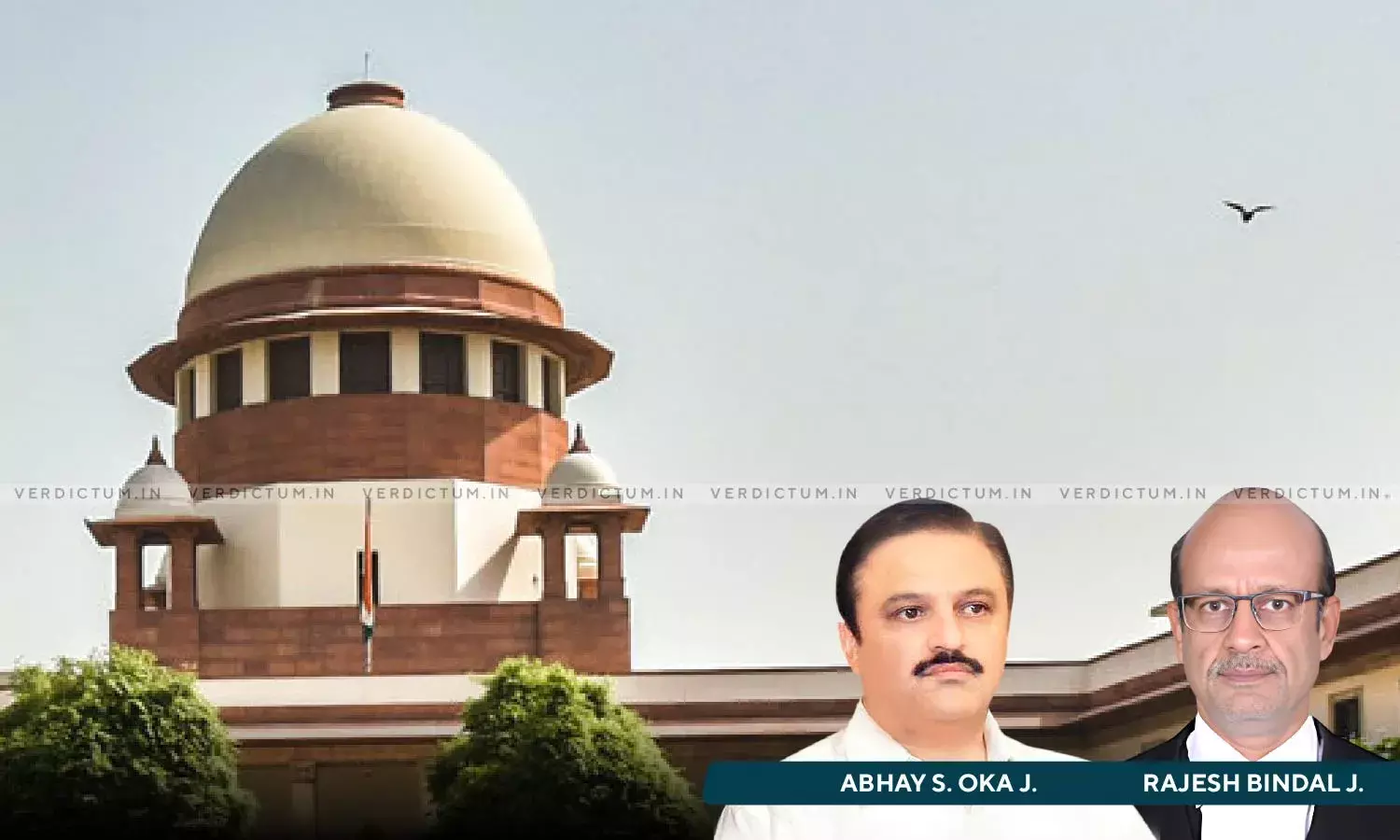'Insured Has No Right to Claim Car Replacement': Supreme Court Partly Allows BMW's Appeal Against NCDRC Order

The Supreme Court, while partly allowing appeal filed by BMW India against NCDRC order, observed that the insured has no right to claim car replacement when the insurance policy does not have any such provision.
The National Consumer Disputes Redressal Commission(NCDRC) had affirmed the State Consumer Disputes Redressal Commission's order, instructing both the insurer and BMW to compensate the owner for the complete loss of the BMW 3 Series 320D car by providing a replacement of the same make/model. Against this order, appeals were filed by Bajaj General Insurance (Bajaj) and BMW Pvt Ltd.
The Bench comprising Justice Abhay S. Oka and Justice Rajesh Bindal observed, “In case of total loss/constructive total loss, instead of paying the amount as aforesaid, the insurer has an option available to replace the vehicle with a new one. Thus, it is not the right of the insured under the policy conditions to always claim replacement of the car. It is at the option of the insurer”.
Advocate Anisha Upadhyay appeared for the Appellant and Advocate Vinay Kumar Misra appeared for the Respondent.
Mukul Aggarwal's (Respondent’s) BMW 3 Series 320D was irreparably damaged in an accident. His insurance claim with Bajaj General Insurance (Bajaj) was denied due to claim submission delay, non-response to insurer letters, discrepancies in accident descriptions, and the discovery of blood stains in the vehicle. Aggarwal pursued a complaint with the SCDRC, which ruled in his favor, obligating Bajaj and BMW to indemnify him for the car's replacement under BMW Secure Advance. The decision was upheld by the NCDRC dismissing appeals by Bajaj and BMW.
Aggrieved, both BMW and Bajaj approached the Supreme Court by way of Civil Appeals challenging the judgment of NCDRC.
The Court noted that the dispute centered on the jurisdiction of SCDRC over a Gurugram accident claim. Citing Consumer Protection Act, 1986 (Act), Section 17(2)(b), which indicated the presence of both insurer and dealer offices in Delhi, the Commissions affirmed the jurisdiction. The National Commission concluded that by entertaining the complaint, the State Commission adhered to Section 17(2)(b) of the Act. The Court, therefore, noted that the SCDRC had the territorial jurisdiction to preside over the accident claim.
“By referring to clause (b) of subsection (2) of Section 17 of the Consumer Protection Act, 1986 (the 1986 Act), the Commissions found as a matter of fact that the insurer as well as the dealer were carrying on business from their offices in Delhi. The National Commission observed that the State Commission, by entertaining the complaint, granted permission for filing the complaint as contemplated by clause (b) of subsection (2) of Section 17. Therefore, on that count, we cannot find fault with the impugned judgments”, the Bench noted.
Furthermore, the Bench noted that even though the car was registered under Dassault’s name, the owner, who was a director at Dassault at the time of purchase, successfully claimed ownership. Both the State and National Commissions affirmed that the vehicle was purchased for the owner’s benefit, with loan payments from his salary. As per the Act, anyone using goods, besides the buyer, qualifies as a consumer.
The Court also noted that the insurance policy’s Insured Declared Value (IDV) for the car was Rs.29,46,278/-. The policy includes general and special exemptions, with Clause (4) requiring precautions and immediate written notice to the insurer after an accident. A constructive total loss (CTL) is defined if retrieval or repair costs exceed 75% of the IDV. In case of a total loss, the insurer pays IDV less wreck value, with an option to replace the vehicle.
The Bench emphasized that BMW’s liability under the Secure policy activates only upon the insurer acknowledging the total loss of the insured vehicle under the motor insurance policy. Establishing the acceptance of the case regarding total loss is crucial.
The Court, on the issue of policy repudiation by the insurance company, observed that the primary basis for repudiation was a significant delay in informing the insurer of the accident. However, the Bench noted that the evidence exists that the accident, reported to the police, transpired on July 29, 2012. The insurer neither contested the accident nor asserted it resulted from the driver's rash and negligent driving. Moreover, the insurer didn't claim that the driver faced prosecution for such conduct. Consequently, the Court concluded that the insurer's repudiation of the insurance policy lacked validity.
The Court observed that all four contentions of the Appellants were rejected by the State and National Commissions. The Commissions found that the insured had promptly informed the insurer of the accident, responded to the insurer's letter, and corrected any discrepancies in the accident reports. The insurer's allegations of negligence and application of policy exceptions were also found to be without merit.
Additionally, the Bench observed that the insured was entitled to monetary compensation from both the insurer and BMW. The direction of the State Commission, confirmed by the National Commission, to replace the car was not sustained and was substituted by a direction to pay monetary compensation.
Accordingly, the Court allowed the Appeal and set aside the operative part (replacing car) of the impugned order of the SCDRC.
Cause Title: Bajaj Allianz General Insurance Co.Ltd. v Mukul Aggarwal & Ors. (2023 INSC 1005)

